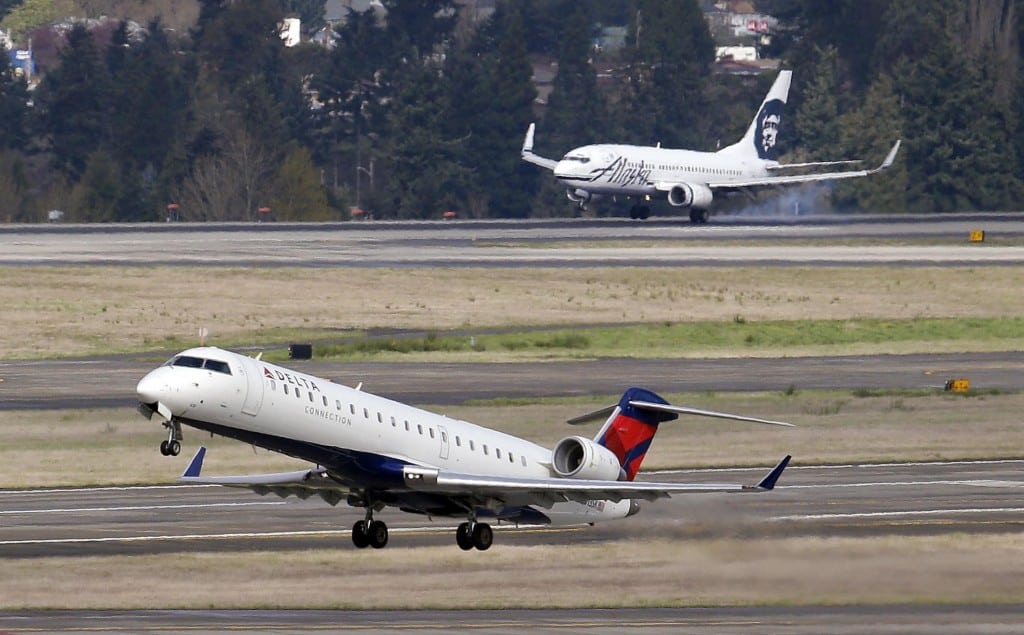Skift Take
Delta and Alaska haven't been cozy for years, but many customers still have enjoyed the reciprocal frequent flyer benefits. Now that's about to end, and the airlines will be true competitors.
Alaska Airlines and Delta Air Lines, who have battled fiercely for share in Seattle in the past three years despite being commericial partners, finally will stop cooperating on May 1.
The announcement came less than a week after Alaska closed its acquisition of Virgin America. It means Alaska and Delta will no longer sell each other’s flights on a regular basis, and loyalists of one airline will not earn and redeem award miles on the other. Elite frequent flyers also will not receive benefits, such as free first class upgrades or roomier economy class seats, when flying the other airline.
Delta and Alaska have long been partners, and when Delta announced in 2012 that it would build a trans-Pacific hub in Seattle — Alaska’s hometown — it seemed like the relationship might blossom. Ideally, Alaska would fly many of Delta’s passengers to Seattle, where they would hop on larger Delta jet for flights to Shanghai, Tokyo or Hong Kong.
But over time, Delta stopped relying on Alaska to feed passengers. Instead, Delta added enough flights in Seattle — it now has 150 departures on peak days — that it no longer needed to put passengers on Alaska’s flights. In announcing the end of its relationship on Monday, Delta said it has tripled its flights and destinations in Seattle in three years. Many of those new routes compete directly with Alaska.
The partnership had become so weak that the U.S. Department of Justice hardly mentioned it earlier this month when it cleared Alaska’s merger. Instead, the government focused on Alaska’s similar, but more broad, commericial relationship with American. As part of its settlement agreement, Alaska must reduce, though not eliminate, its partnership with American. The government wanted Alaska to more forcefully compete with American.
In recent years, Alaska has sought to reduce its reliance on codeshares, which this year will account for about 6 percent of overall revenues, down from 9 percent in 2014. Two years ago, Alaska earned $225 million through its relationship with American, and $190 million with Delta. This year, Alaska projects it will make $65 million from Delta, and $190 million from American, according to a recent filing.
Alaska is now in the nation’s fifth-largest airline, and it likely does not need the Delta relationship as much as in the past. But Alaska still does not fly to many smaller cities, especially on the East Coast, and in the past many those customers flying to those markets stayed loyal to Alaska but flew Delta. In the future, that will not be possible.
Delta and Alaska will retain an interline agreement. In special situations, such as during a winter snow storm, that will allow one airline to put passengers on the other. All airlines have typically had those relationships with competitors, but Delta recently canceled its interline agreement with American.
The Daily Newsletter
Our daily coverage of the global travel industry. Written by editors and analysts from across Skift’s brands.
Have a confidential tip for Skift? Get in touch
Tags: alaska airlines, delta air lines, virgin america
Photo credit: Delta and Alaska are ending their commericial partnership. Elaine Thompson / Associated Press
